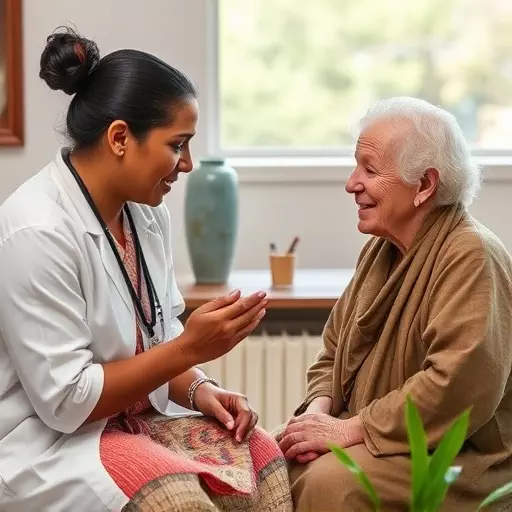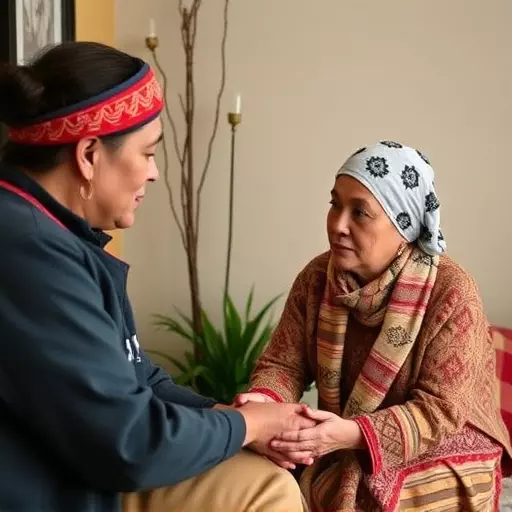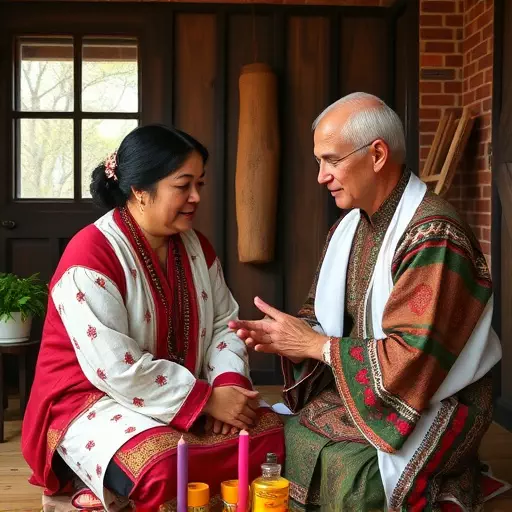In Bloomington-Bedford, integrative medicine combines ancient wisdom, like Traditional Islamic Medicine (TIM), with modern medical practices. This approach respects cultural nuances by integrating herbal remedies, dietary guidelines, and mind-body techniques from diverse traditions into standard care. By adapting to individual patient backgrounds and beliefs, including religious practices and spiritual traditions, this model enhances patient outcomes and satisfaction, fostering trust between healthcare providers and diverse communities.
“Uncover a timeless journey towards holistic health with Traditional Islamic Medicine (TIM), an ancient system that has evolved into a modern phenomenon. This article explores the resurgence of TIM, particularly in Bloomington-Bedford, where its principles are seamlessly integrated into contemporary healthcare practices.
We delve into the historical roots of TIM, its emphasis on mind-body-spirit connection, and how it adapts to diverse cultural contexts. By combining ancient wisdom with modern research, integrative medicine in Bloomington-Bedford offers innovative solutions, catering to a wide range of patients while respecting their unique cultural backgrounds and health beliefs.”
- Unveiling Traditional Islamic Medicine: A Historical Perspective on Holistic Health
- Integrating Ancient Wisdom with Modern Practices: The Rise of Integrative Medicine in Bloomington-Bedford
- Cultural Sensitivity and Adaptability: How Integrative Medicine Embraces Diversity in Healthcare
Unveiling Traditional Islamic Medicine: A Historical Perspective on Holistic Health

Traditional Islamic Medicine (TIM) offers a rich historical perspective on holistic health that has influenced healing practices for centuries. Rooted in ancient Arabic texts, TIM integrates spiritual, mental, and physical well-being, drawing upon herbal remedies, dietary guidelines, and mind-body techniques. This integrative medicine approach, thriving in communities like Bloomington-Bedford, adapts to cultural differences, making it relevant in modern healthcare settings.
By integrating traditional healing practices into contemporary care, TIM bridges the gap between Eastern and Western medical traditions. Its adaptability allows for personalized treatment plans that consider not just symptoms but also patients’ unique backgrounds and beliefs. This holistic approach aligns with the growing demand for complementary and alternative medicine, showcasing how integrative medicine in Bloomington-Bedford can cater to diverse populations while respecting cultural nuances.
Integrating Ancient Wisdom with Modern Practices: The Rise of Integrative Medicine in Bloomington-Bedford

In Bloomington-Bedford, there’s a growing trend towards integrating ancient wisdom with modern medical practices, giving rise to what is now known as integrative medicine. This approach combines evidence-based treatments from Western medicine with traditional healing techniques stemming from diverse cultural backgrounds, including traditional Islamic medicine. By embracing these multifaceted strategies, healthcare providers in the community are able to offer holistic care that respects and adapts to patients’ cultural differences and personal preferences.
Integrative medicine in Bloomington-Bedford recognizes the value of natural remedies, dietary adjustments, and mental well-being practices that have long been part of traditional healing systems. For instance, incorporating herbal supplements, mindfulness techniques, and spiritual therapies alongside conventional treatments can lead to improved patient outcomes and enhanced satisfaction. This inclusive approach not only caters to the diverse needs of a multicultural community but also fosters trust and collaboration between healthcare providers and patients.
Cultural Sensitivity and Adaptability: How Integrative Medicine Embraces Diversity in Healthcare

In the heart of Bloomington-Bedford, integrative medicine is in full bloom, reflecting a beautiful synthesis of traditional healing practices and modern healthcare. This approach recognizes the importance of cultural sensitivity and adaptability, ensuring that holistic health solutions resonate with diverse communities. By integrating traditional Islamic medicine into contemporary care, healthcare providers offer a more inclusive and personalized experience. It allows for a deeper understanding of patients’ cultural backgrounds and beliefs, fostering trust and collaboration in the healing process.
The adaptability of integrative medicine lies in its ability to embrace and accommodate various cultural differences. This includes not just religious practices but also dietary preferences, lifestyle choices, and spiritual traditions. By incorporating traditional healing methods, such as herbal remedies, meditation, and nutritional guidance rooted in Islamic teachings, healthcare becomes more culturally aligned. This approach respects the holistic worldview inherent in many cultures and promotes better patient outcomes by addressing physical, mental, and spiritual dimensions of health.
